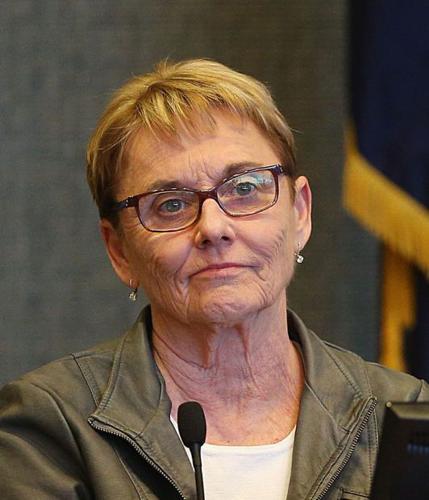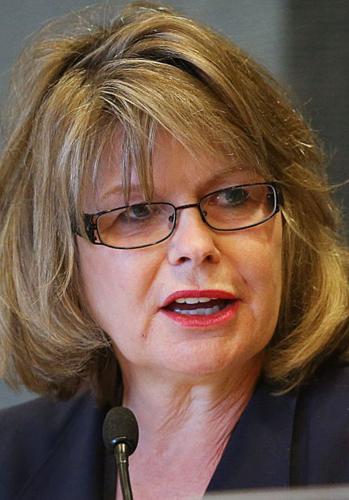PHOENIX — A state law directing when ballots can be hand-counted apparently does not bar Pima County from doing its own hand verification of the November bond election, the Attorney General’s Office said Monday.
The politically charged issue is likely to be addressed Wednesday during a special meeting of the county Board of Supervisors.
The hand count was recommended last month by the county’s Election Integrity Commission, and Pima County sought an informal opinion.
There is a provision in state election law that says if there are no “contested races” in an election, “a hand count shall not be conducted for that precinct for that election,” Solicitor General John R. Lopez acknowledged in the informal opinion. And a 2008 opinion by the county Attorney’s Office specifically said there is no express authority in state law for a hand count for bond elections.
But in a letter to county Administrator Chuck Huckelberry, Lopez also said the law “does not affirmatively bar hand counts.” Instead, he said the law “only provides instructions for the county official in charge of elections on what races to count” when the statute actually requires such a count.
But Lopez cautioned that he is not saying — or expressing an opinion on — exactly where there would be specific authority for a hand count beyond what is mandated in law.
And Lopez also said he is not weighing in on what procedures the county should use for any hand count. Nor is he saying what effect, if any, a hand count might have on the official outcome.
Supervisors are likely to deal with the hand-count issue Wednesday during a special meeting at 2 p.m.
The board’s regular Tuesday meeting was canceled Friday after the death of Albert Elías, father of Board Member Richard Elías. In addition, Supervisors Sharon Bronson and Ray Carroll had already planned to be in Washington, D.C., meeting with members of the state’s congressional delegation.
Supervisor Ally Miller said she was unaware of the pair’s trip until Friday, and questioned the timing.
“I don’t think an economic development trip to Washington, D.C., should take precedent over our elections,” Miller said. “I don’t understand why anyone would object to a hand-count audit of any of the local races.”
On Oct. 6, the board approved allowing one race in each of the three elections — City Council, city propositions and county bond — to be verified by hand. A final decision was planned for Tuesday’s canceled meeting.
Bronson dismissed Miller’s suspicions and said she requested a special meeting for Wednesday in which she and Carroll would participate by telephone.
Miller said it was critical for the county to have all possible election-verification processes in place to ensure accurate results. She noted the lingering perception that previous elections lacked integrity, particularly the often-challenged 2006 Regional Transportation Authority election.
“There never was any verification of that election,” Miller said.
Election results from 2006 were contested numerous times in court and survived all challenges. The Arizona attorney general in 2009 conducted a hand count of ballots verifying the results. The attorney general also investigated elections in 2007 and 2008, both times finding no wrongdoing.
Huckelberry says he never had any problem with such verifications from the machines the county uses to tally votes. In fact, he said it makes some sense, given the history of challenges.
That specifically includes the 2006 election to increase the sales tax to raise $2 billion for the Regional Transportation Authority. Lawsuits contesting the results and contending the voting machines were rigged extended all the way to 2014.
“Based on the 2006 RTA election, there’s always paranoia,” he said. “We can count as many races and precincts as people want us to do because we want to instill confidence that the result is the result.”
The issue, Huckelberry said, comes down to two separate provisions of state law.
One, he said, authorizes such hand recounts for state elections. But Huckelberry said there are no state issues on the November ballot.
He said the other goes to that question of what is a “contested race.”
Huckelberry said the hand count of a representative number of ballots should not be a big hassle.
He pointed out that the county also is running the November city election. And because Tucson is a charter city, free to set its own rules, it is free to ask that county election officials audit those results.
Adding the bond issue and some more precincts to the verification, he said, should be easy.
There are seven separate questions on the November bond ballot, totaling $816 million. The largest of these are Proposition 425 with $200 million for roads and highways, with $192 million in Proposition 428 for parks and recreation.
In a memo to Bronson, Tom Ryan, who chairs the election integrity panel, cited the county’s use of new equipment in the election.
“Since we have no track record with this equipment, we need to establish the integrity of the tabulation process,” Ryan said. “This will also provide a better opportunity to become familiar with the new system and its peculiarities.”.
“We wish to avoid or at least reduce the likelihood of expensive legal proceedings that might arise from distrust of the election system,” Ryan said, noting the 2006 election.
Attorney William Risner, representing the Pima County Committee of the Arizona Libertarian Party, said the system used to scan and tally ballots, which showed that bond issue passed by a 60-40 margin, is subject to tinkering and abuse.
His lawsuit would not have changed the outcome of the 2006 election, coming too late for that. Instead, Risner sought a safeguard for future races, including a requirement that future ballots be scanned and copied so outsiders could review the accuracy of the vote tally.
There is no such procedure currently permitted in law. So Risner sought a hand recount of the 2006 race to prove to judges that computer-counted results were inaccurate and do not guarantee honest results.
But in a unanimous ruling, the state Court of Appeals concluded there is no legal basis to grant the request. Judge John Gemmill, writing for the court, said the party had not identified any specific thing that Pima County had done that would justify something different down the road.







